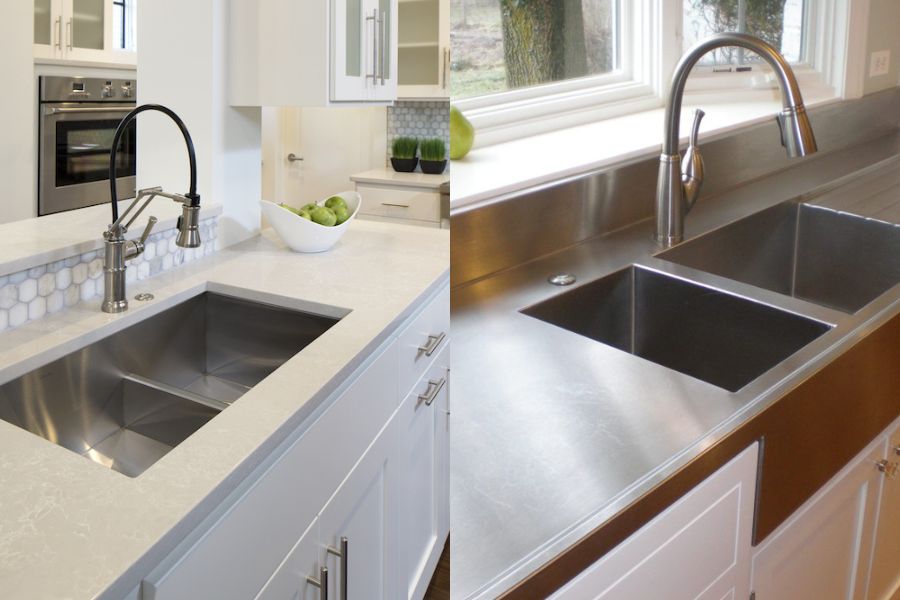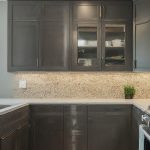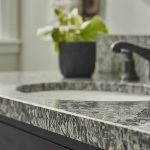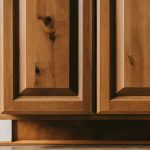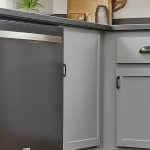When it comes to selecting the perfect countertops for the kitchen & bathroom, understanding the difference between porous and non-porous surfaces is crucial. Porous options like granite, marble, and wood have small openings that allow liquids and gasses to penetrate, offering unique aesthetics but requiring extra care and maintenance to prevent staining and bacterial growth.
On the other hand, non-porous countertops like quartz, solid surfaces, and stainless steel have sealed surfaces that resist liquid absorption.
What are Porous Countertops?
Porous countertops are made from materials that have minute openings or pores within their structure, allowing liquids and gasses to penetrate. These countertops for the kitchen and bathroom offer unique aesthetics, they require extra care and maintenance to prevent staining and bacterial growth.
3 Most Common Porous Countertop Materials
Some of the common porous countertop materials are as follows:
1. Granite
Granite, a popular choice for countertops, is a natural stone known for its durability and unique patterns. However, it is porous and can absorb liquids if it’s not sealed properly. Regular sealing is recommended to maintain the appearance of granite countertops and to prevent stains.
2. Marble
Marble countertops exude elegance and luxury, but they are highly porous. Marble is susceptible to staining, especially from acidic substances. Sealing is essential, and homeowners need to be vigilant about spills and regular maintenance.
3. Wood
Wooden countertops, while warm and inviting, are inherently porous. Kitchen countertops installation without proper sealing, wood can absorb liquids and is prone to staining. Regular sealing and careful maintenance are necessary to preserve the wood’s integrity.
What are Non-Porous Countertops?
Non-porous countertops for the kitchen and bathroom, on the other hand, are constructed from materials that have a dense and sealed surface, preventing the absorption of liquids. These countertops are generally easier to clean and maintain, making them a popular choice for kitchens and bathrooms where spills are common.
3 Most Common Non-Porous Countertop Materials
Some of the common non-porous countertop materials are as follows:
1. Quartz
Quartz countertops are engineered non-porous luxury bathroom countertops by combining crushed quartz with resins and polymers. This results in a highly resistant surface to stains and bacterial growth. Quartz countertops require minimal maintenance and do not need regular sealing.
2. Solid Surface
Solid surface countertops, like those made from acrylic or polyester materials, are non-porous and resistant to stains. These countertops offer a seamless appearance and are easy to clean, making them a practical choice for busy kitchens.
3. Stainless Steel
Stainless steel countertops are not only sleek and modern but also non-porous. They are resistant to stains, heat, and bacteria. While stainless steel can scratch, these scratches can be buffed out, maintaining the countertop’s aesthetic appeal.
What is a non-porous countertop?
Non-porous countertops for the kitchen and bathroom have a surface that does not allow liquids or gasses to penetrate. This property makes it resistant to stains, moisture, and bacterial growth.
Which countertop is most porous?
Natural stone countertops, such as limestone or marble, are generally more porous than other materials like quartz or solid surfaces. This makes them more likely to stain and requires additional sealing for protection.
What are the three types of porous surfaces?
Porous surfaces encompass various materials, including natural stone like marble, limestone, and granite, which naturally possess minute openings. Wood surfaces, particularly when untreated or inadequately sealed, also fall into the porous category. Additionally, unglazed ceramic tiles are great in quality, making them more prone to liquid absorption and stains than their glazed counterparts.
Conclusion
All in all, selecting the right countertop material depends on your lifestyle, aesthetic preferences, and maintenance considerations. So, if you’re looking for premium quality countertops for the kitchen and bathroom, you should contact none other than Granite Nations to get a quote.

